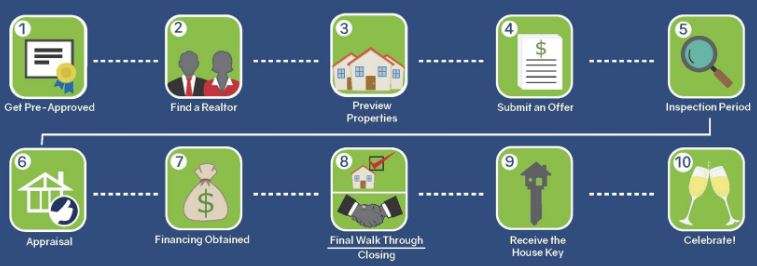Introduction:
However, this dream often comes with financial uncertainties and risks, especially when it comes to obtaining a mortgage. To address these concerns and provide a safety net for both lenders and borrowers, the concept of Mortgage Insurance has become a crucial component of the housing finance landscape. In this in-depth exploration, we will unravel the intricacies of Mortgage Insurance, its significance, types, and the evolving dynamics within the housing market.
- Understanding Mortgage Insurance:
- Definition and Purpose:
Mortgage Insurance is a risk mitigation tool designed to protect lenders from financial losses in the event of borrower default. This insurance provides a safety net by covering a portion of the lender’s losses if a borrower fails to repay the mortgage. While it primarily serves the interests of lenders, it indirectly benefits borrowers by facilitating access to homeownership with lower down payment requirements.
- Types of Mortgage Insurance:
- Private Mortgage Insurance (PMI): Typically required for conventional loans with a down payment of less than 20%. PMI allows borrowers to secure a mortgage with a smaller upfront investment.
- Federal Housing Administration (FHA) Mortgage Insurance: Geared towards low and moderate-income borrowers, FHA loans require mortgage insurance to protect the government-backed lender against default.
- Private Mortgage Insurance (PMI):
- How PMI Works:
For borrowers making a down payment of less than 20%, PMI becomes a requirement. This insurance is typically paid as a monthly premium, a one-time upfront premium, or a combination of both, depending on the lender and the loan structure.
- Calculating PMI Costs:
The cost of PMI is influenced by various factors, including the loan amount, down payment percentage, and the borrower’s credit score. Understanding how these elements interplay is crucial for borrowers aiming to estimate their overall homeownership costs accurately.
III. Federal Housing Administration (FHA) Mortgage Insurance:
- FHA vs. Conventional Loans:
Comparing FHA loans with conventional loans helps borrowers make informed decisions based on their financial situation and homeownership goals. While FHA loans offer lower down payment requirements, they come with the added cost of MIP throughout the life of the loan.
- U.S. Department of Veterans Affairs (VA) Loans:
- VA Funding Fee:
VA loans, available to eligible veterans, active-duty service members, and their surviving spouses, do not require private mortgage insurance. However, they may have a funding fee, which serves a similar purpose by mitigating the financial risk for the VA lender.
- Advantages of VA Loans:
Understanding the benefits of VA loans, including no down payment requirement and competitive interest rates, highlights the support provided to those who have served in the military. While there is a funding fee, it is a one-time cost that can be rolled into the loan amount.
- The Impact of Mortgage Insurance on Borrowers:
- Affordability and Access to Homeownership:
Mortgage Insurance plays a pivotal role in making homeownership more accessible. By allowing borrowers to secure a mortgage with a lower down payment, it broadens the pool of potential homebuyers, fostering inclusivity in the housing market.
- Balancing Costs and Benefits:
While Mortgage Insurance is a valuable tool for achieving homeownership with a smaller upfront investment, borrowers need to weigh the benefits against the costs. Understanding the long-term financial implications helps borrowers make informed decisions about the most suitable loan option for their circumstances.
- Risk Mitigation for Lenders:
- Lender Protections and Risk Management:
For lenders, Mortgage Insurance serves as a risk management tool, especially in scenarios where borrowers have a smaller equity stake in the property. This protection allows lenders to extend mortgages to a broader range of borrowers without exposing themselves to excessive financial risk.
- Default and Foreclosure Mitigation:
In the unfortunate event of borrower default and subsequent foreclosure, Mortgage Insurance helps mitigate the financial impact on lenders. The insurance coverage assists in covering the shortfall between the proceeds from the sale of the foreclosed property and the outstanding mortgage balance.
VII. Evolving Trends and Challenges in Mortgage Insurance:
- Technological Integration:
Advancements in technology, including data analytics and artificial intelligence, are reshaping the mortgage industry, including Mortgage Insurance. Insurers are leveraging these technologies to streamline the underwriting process, assess risk more accurately, and enhance the overall efficiency of mortgage transactions.
- Housing Market Dynamics:
Fluctuations in the housing market, economic conditions, and regulatory changes can significantly impact the landscape of Mortgage Insurance. Staying attuned to these dynamics is crucial for both insurers and borrowers to navigate the ever-changing terrain of homeownership.
VIII. Case Studies:
- Success Stories:
Examining instances where Mortgage Insurance successfully facilitated homeownership for borrowers and protected lenders from financial losses provides real-world examples of its effectiveness.
- Challenges and Resolutions:
Analyzing challenges faced by borrowers, lenders, and insurers in the realm of Mortgage Insurance sheds light on potential areas for improvement and innovation. Success stories of overcoming these challenges demonstrate the adaptability of the mortgage industry.
Conclusion:
In the intricate tapestry of homeownership, Mortgage Insurance stands as a crucial thread, weaving together the aspirations of borrowers and the risk mitigation needs of lenders. By understanding its nuances, borrowers can make informed decisions about their homeownership journey, while lenders can navigate the complex landscape of mortgage lending with greater confidence. As the housing market continues to evolve, Mortgage Insurance adapts, ensuring that the path to homeownership remains accessible and secure for individuals and families across diverse financial backgrounds.
